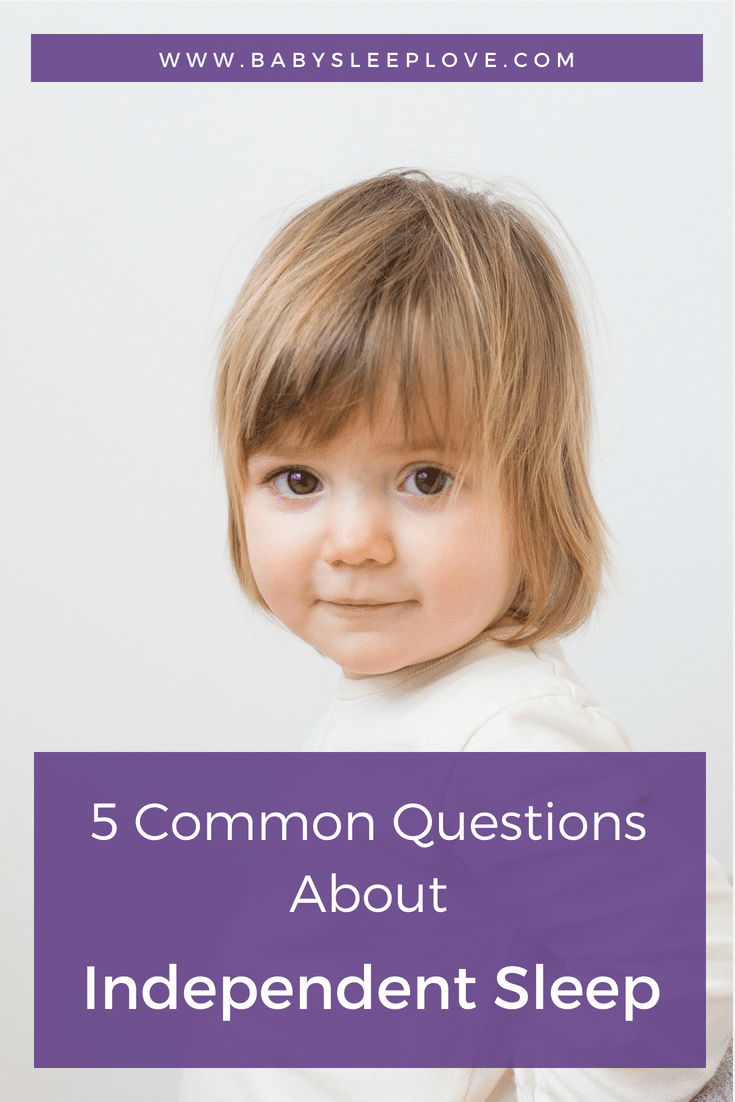
Baby Sleep Love
Certified Sleep Consultant
If you’ve been following along, you’ll know that I help families with small children get more sleep. As you can imagine, I get lots of questions about sleep – including independent sleep.
What does bedtime look like for a little one with solid independent sleep skills?
One of the more common questions I get is about sleep independence. For instance, I’m usually asked this the first time I jump onto a call with a parent looking for help with their little one’s sleep. “What do you mean by independent sleep? What does that actually look like?” Great question! I’m going to try to answer this in the clearest and simplest way possible, by painting a picture for you. Imagine this…
You go through your amazing, relaxing, comforting bedtime routine with your little one. That is to say you give a massage, read some books, sing some songs (whatever your routine happens to be), give big cuddles and kisses, tell them you love them and get them into bed. As a result, they fall asleep easily, happily, confidently and comfortably – without their parents having to make them fall asleep.
For those of you laughing or gasping or in general disbelief about this concept, trust me when I say that I was skeptical at first too – many of the families I’ve worked with have initially reacted this way, too. But it can happen! And for some (me included), it’s life-changing.
Why would you want to teach independent sleep skills?
Babies and toddlers cycle through multiple sleep phases overnight. Some of these are deep, some of these are light. And, as you can imagine, as the night goes on they cycle through more and more frequent periods of light sleep (which translates into very early mornings for some families). If you’ve made your baby, toddler or preschooler fall asleep initially at bedtime, they may need you to recreate those same conditions and provide the same help overnight as they cycle through those lighter periods of sleep and stir awake because they’re unable to do this for themselves. This tends to result in frequent overnight wakings and often in early mornings too.
When a little one has these solid skills, they will cycle through these periods of light sleep and get right back to sleep (unless they are hungry or there’s some other reason they need you!). It’s exactly the same as when we as adults stir in the middle of the night to get into a more comfortable position or adjust our pillow.
Do I need to teach these skills?
Short answer? No. There are some little ones who can be assisted to sleep and sleep entirely throughout the night and take long naps. There are some families who choose to continue to assist to sleep regardless of what happens overnight or during naps.
I am a firm believer that you don’t have an issue with sleep unless you think you do.
If assisting to sleep isn’t working for you anymore, then teaching independent sleep skills might be something you’d like to consider at that point.
Can it be gentle?
Yes. Absolutely. There are so many ways to help you improve your little one’s sleep, and none of them need to make you feel uncomfortable. Just as I tell the families that I work with, if you don’t feel comfortable with an approach to improve sleep, then it won’t work. That’s the truth. And it’s that simple.
So if gentle and gradual is the approach you’d like to take, go for it! Whether you choose a more traditional form of ‘sleep training’ (which can take a few days to a couple of weeks) or a gentler, more gradual approach (which can take a few weeks to a couple of months), be sure to set clear goals and realistic expectations for your family. With time, patience and consistency, you’ll get where you’d like to be.
Is it ever too late?
It’s never too late to teach independent sleep skills, whether your baby is 10 months, 27 months, 4 years or older! And in fact, it’s also never too early to implement healthy sleep habits and gently encourage independent sleep. I work with families of weeks-old babies all the way up through to school-aged children. Of course, the approach with young babies is completely different from the approach with an older baby, toddler or preschooler. But no, rest assured that it’s never too late.
SaveSave
SaveSave
SaveSave
SaveSave
SaveSave
SaveSave
Join Baby Sleep Love on Facebook and Instagram.
Looking for some help teaching your little one to fall asleep on their own, in a supportive online group setting with lots of specific guidance from me? Check out my Four Weeks to Better Sleep online sleep program.
Ready for a flexible AND predictable baby sleep schedule? Click here to buy The Better Sleep Bundle for Babies (for just $12!), and start carving out some downtime.
Craving some step-by-step, personalized help with teaching your toddler to fall asleep on their own, and sleep through the night? I’ve got you covered! Take a look at how we can help with our packages here. I work with children up to 6 years old (it’s never too late!).
